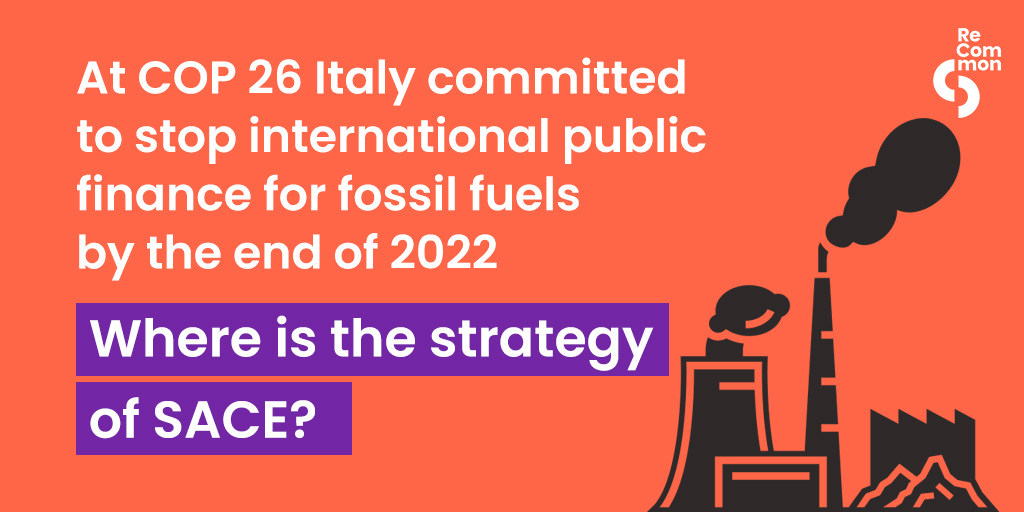At the end of the G7 hosted in Germany and on the occasion of London Climate Action Week, a new international report “Turning Pledges into Action” highlights how public financial institutions are falling behind on climate commitments made by national governments at COP26 in Glasgow. The study, led by the International Institute for Sustainable Development, Oil Change International and Tearfund, specifically focuses on those countries and international financial institutions that have pledged to end international public financing directed to all fossil fuels by the end of 2022. With only 6 months to go before the deadline, most signatories have yet to publish new or updated fossil fuel exclusion policies in line with their UN commitments.

Definitely in the dock are export credit agencies (ECAs), which play the crucial role of hedging a country’s multinational corporations from political and trade risks in their export and foreign investments, especially in countries considered at risk. As the report found, it is mainly these that must bridge the gap between commitments and concrete actions, being the source of more than 80 percent of fossil fuel support in 2018-2020 and not presenting strategies that can bring global public finance into alignment with the Paris Agreement.
Prominent in this scenario of mismatch between words and deeds is Italy, which joined the Glasgow initiative at the last minute, in the figure of SACE, our public export credit agency. SACE recently came under the umbrella of the Ministry of Economy and Finance, whose “fossil” track record fully reflects the public finance profile that emerged from the report. In the three-year period 2018-2020, the Italian agency ranked third in oil and gas financing, behind only Canada and the United States. An alarming figure that is not surprising, however, since SACE’s agenda is geared toward supporting devastating fossil projects. Emblematic in this regard are the financing assessments to Arctic LNG-2, a gas liquefaction megaproject in the Russian Arctic, and to EACOP, the world’s longest heated oil pipeline, which is expected to cut Uganda and Tanzania in two. For the former the assessment is suspended because of the Russian invasion of Ukraine, while regarding EACOP it decided to back out after significant pressure from Italian and international civil society.
Only external pressures and circumstances have driven these decisions, but no political will to abandon fossil fuels emerges on the part of our export credit agency, which between 2016 and 2021 has placed guarantees to the oil and gas sector totaling 13.7 billion euros. Further evidence of this is the fact that the agency has never made clear and detailed information about its climate strategy, which is the one that should also lead to the implementation of the commitments made at COP26 in Glasgow. A summary of the Climate Change Policy, which was not introduced until May 2021, can be found in SACE’s Non-Financial Statement 2021. From what little can be read, these are limited commitments, both in the coal and oil and gas sectors: there is a lack of timelines, a lack of a strategy for moving away from fossil fuels, a lack of details on implementation. In short, the commitments are there but, de facto, they are not in the public domain. The unreliability of non-binding international commitments, such as the one made in Glasgow on stopping international public financing of fossil fuels, is confirmed by the lack of political will, transparency and strategy of public financial institutions that should play a crucial role in the energy transition process and act as leverage for private institutions as well. A role questioned especially by civil society actors in economically less advanced countries. Actors who question what the real willingness of export credit agencies is, SACE included, to play a role in the just global energy transition, given their constant support for the fossil industry that has internationally promoted projects devastating to the climate, environment and people.
